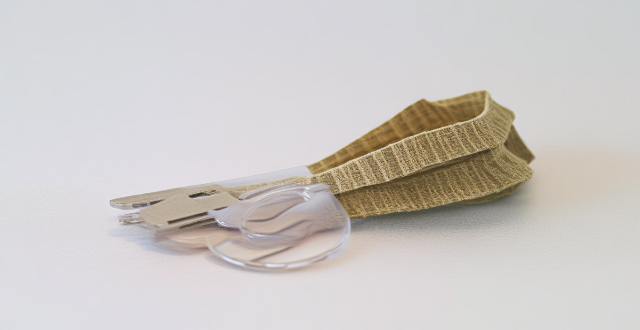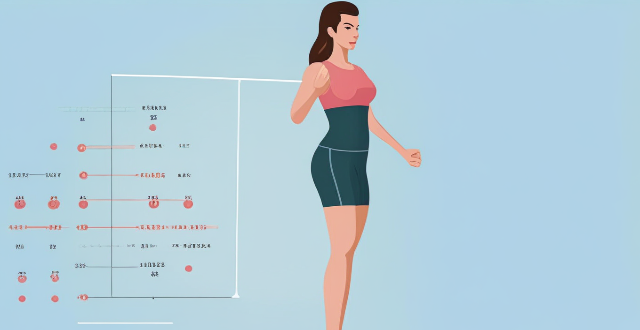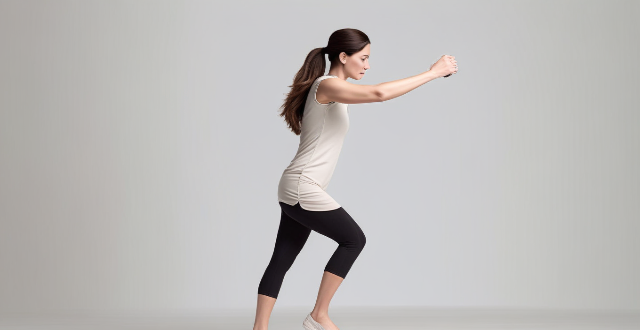Health Week

Is there a specific amount of exercise needed per week to see mental health benefits ?
The article discusses the importance of exercise for mental health and explores if there is a specific amount of exercise needed per week to see mental health benefits. It mentions that various health organizations have established guidelines for the recommended amount of exercise per week for adults, focusing on physical health outcomes but also acknowledging the mental health benefits associated with regular exercise. The article suggests that engaging in at least 150 minutes of moderate-intensity exercise per week can lead to significant improvements in mental health, alternatively performing at least 75 minutes of vigorous-intensity exercise per week can also yield positive results. A combination of moderate and vigorous exercises can provide a well-rounded approach to enhancing mental well-being.

How much exercise is needed per week to prevent chronic disease ?
Chronic diseases are a major cause of death and disability worldwide. Regular physical activity can help reduce the risk of developing chronic diseases such as heart disease, diabetes, and some types of cancer. According to the World Health Organization (WHO), adults should aim to do at least 150 minutes of moderate-intensity aerobic exercise or 75 minutes of vigorous-intensity aerobic exercise each week, along with muscle-strengthening activities at least twice a week. However, the amount of exercise needed to prevent chronic diseases may vary depending on individual factors such as age, sex, body weight, and overall health status. It's recommended that people try to incorporate at least 30 minutes of moderate-intensity aerobic exercise into their daily routine, along with strength training exercises whenever possible.

How often should seniors engage in aerobic activities for heart health ?
Engaging in regular aerobic activities is crucial for seniors to maintain heart health and overall well-being. The American Heart Association recommends at least 150 minutes of moderate-intensity or 75 minutes of vigorous-intensity aerobic activity per week, spread throughout the week. For seniors, this could include brisk walking, swimming, or biking for at least 30 minutes five days a week (moderate intensity) or running and fast cycling for at least 25 minutes three days a week (vigorous intensity), depending on their capability and medical restrictions. Regular aerobic activity offers numerous benefits for seniors, including improved cardiovascular fitness, better blood pressure and cholesterol levels, weight management, increased muscular strength and endurance, and boosted mental health. However, safety precautions should be taken, such as consulting with a healthcare provider before starting an exercise program, starting slowly, choosing low-impact exercises, staying hydrated, wearing appropriate clothing and footwear, and monitoring bodily responses to the activity. By following these guidelines and taking necessary precautions, seniors can significantly improve their quality of life and maintain their independence longer.

How much daily exercise is recommended for maintaining good health ?
To maintain good health, daily exercise is crucial and varies based on age, health status, and fitness goals. General guidelines for adults include 150 minutes of moderate aerobic activity or 75 minutes of vigorous activity per week, and muscle strengthening activities at least twice a week. Children and adolescents should engage in 60 minutes of moderate to vigorous activity daily and participate in muscle and bone strengthening activities three times a week. Older adults should focus on balance training, aerobic activities, and muscle strengthening exercises. It's important to start slowly, incorporate variety, and listen to your body. Any amount of physical activity is better than none and can lead to significant health benefits.

How much money do top football players earn per week ?
Top football players can earn a significant amount of money per week, with factors such as performance, club affiliation, market value, sponsorship deals, and image rights affecting their earnings. Some of the highest-paid players, like Lionel Messi and Cristiano Ronaldo, can earn millions per week when taking into account their salary, bonuses, and endorsements. However, it's important to note that these earnings are the result of immense talent, hard work, and dedication to the sport.

How many times a week should I practice yoga poses to see results ?
Practicing yoga poses is an excellent way to improve your flexibility, strength, and overall well-being. However, the frequency of your practice can greatly impact the results you achieve. In this article, we will discuss how many times a week you should practice yoga poses to see noticeable improvements in your physical and mental health. Before determining the ideal number of yoga sessions per week, it's essential to consider several key factors: your current fitness level and experience with yoga, the amount of time you can dedicate to each session, and your specific goals (e.g., increased flexibility, stress relief, muscle building). By taking these factors into account, you can create a personalized yoga routine that suits your needs and helps you achieve your desired outcomes. For beginners, starting with two or three sessions per week is generally recommended. This allows your body to gradually adapt to the postures and prevents overexertion or injury. As you become more comfortable with the practice, you can gradually increase the frequency of your sessions. Once you have established a consistent yoga practice and gained some experience, increasing the frequency of your sessions can help you continue to see progress. For intermediate practitioners, aiming for four to five sessions per week is often beneficial. This allows you to maintain your current level of flexibility and strength while also challenging yourself to try more advanced postures and sequences. Advanced yogis who have been practicing for several years may choose to practice daily or even multiple times per day. This level of commitment requires a significant amount of time, discipline, and dedication but can lead to profound transformations in both physical ability and mental clarity. Regardless of how frequently you choose to practice yoga poses, there are several tips that can help you maximize the benefits of your sessions: set clear goals, mix up your routine, stay hydrated, and listen to your body. By following these guidelines and adjusting your frequency based on your individual needs and goals, you can create a yoga practice that leads to lasting improvements in both your physical and mental well-being.

How do I meal prep for a week using simple home-cooked recipes ?
Meal prepping is an excellent way to save time, money, and ensure that you are eating healthy meals throughout the week. Here's how you can meal prep for a week using simple home-cooked recipes: 1. Plan your meals based on your dietary needs, preferences, and schedule. 2. Shop for ingredients according to your meal plan. 3. Prep your ingredients ahead of time by washing, chopping, and storing them in airtight containers. 4. Cook and assemble your meals into individual portions and store them in meal prep containers. 5. Reheat and enjoy your pre-made meals throughout the week. By following these steps, you can successfully meal prep for an entire week using simple home-cooked recipes.

How often should women exercise to see results ?
Exercising regularly is crucial for women's health, and the recommended frequency varies based on the type of exercise. Cardiovascular exercises are recommended at least 150 minutes per week, while strength training should be done at least twice a week. Flexibility and balance exercises should be included in the routine at least once a week. Various factors such as age, goals, fitness level, lifestyle, and health conditions can impact the effectiveness of the workout routine. It is essential to listen to your body and adjust your exercise routine accordingly to achieve optimal results and maintain a healthy lifestyle.

Are there specific days of the week or times of the month when sales are most common ?
This text discusses common patterns and trends in sales throughout the week and month. It suggests that there are certain days of the week and times of the month when sales tend to be higher or lower, depending on the industry, product, and target audience. The text provides general insights for each day of the week and different times of the month, such as Monday being a slower start to the week with people getting back into their routines after the weekend, Tuesday showing an uptick in sales as the workweek progresses, Wednesday offering midweek deals, Thursday seeing increased sales in certain categories as customers plan for the weekend, Friday experiencing a spike in sales due to weekend excitement, Saturday being a busy retail day due to more free time, and Sunday having tapering off sales as people prepare for the upcoming week. The text also suggests that there are certain times of the month when sales are most common, such as the beginning of the month when many consumers receive their paychecks and have more spending power, mid-month when people adjust their budgets and look for deals or necessities they've run out of, and the end of the month when businesses aim to meet monthly targets and offer promotions to boost numbers before the month ends. However, the text emphasizes that these trends are general and that it's important to analyze one's own business data and customer behavior to determine the best timing for sales and promotions. Additionally, external factors such as holidays, seasonality, and economic conditions can also significantly influence sales patterns.

Can aerobic exercise improve my cardiovascular health ?
Aerobic exercise is essential for maintaining and improving cardiovascular health, offering benefits such as strengthened heart muscle, lowered blood pressure, increased HDL cholesterol, reduced inflammation, weight management, improved circulation, and better blood sugar regulation. Regular aerobic activities like walking, jogging, cycling, swimming, or group fitness classes can significantly enhance overall heart health. The American Heart Association recommends at least 150 minutes of moderate-intensity aerobic exercise weekly, spread throughout the week, to achieve these benefits.

How often should I exercise to maintain good bone health ?
Exercise is crucial for maintaining good bone health, but the frequency and intensity required vary depending on individual factors. Regular exercise strengthens bones, improves balance, and reduces the risk of falls and fractures. The recommended exercise guidelines for adults are at least 150 minutes of moderate-intensity aerobic exercise per week and two or more days of strength training per week. For older adults, it's important to consult with a healthcare professional before starting any new exercise program. Other factors that impact bone health include diet, smoking, and overall health status.

What are the key indicators of good personal health ?
Good personal health involves taking care of both physical and mental well-being. Key indicators include regular exercise, a balanced diet, adequate sleep, stress management, regular check-ups, and mental well-being. By focusing on these aspects, you can lead a fulfilling life with improved overall health and well-being.

How much exercise is needed to see mental health benefits ?
Regular physical activity is known to improve mental health, but the amount of exercise needed varies based on individual factors. The WHO recommends at least 150 minutes of moderate-intensity aerobic activity and muscle-strengthening activities twice a week for adults. Even small amounts of light activity can have mental health benefits, with moderate-intensity activities like brisk walking improving outcomes significantly. Consistency is key, and personalizing your exercise routine based on preferences and capabilities is essential.

How can I improve my personal health ?
Improving personal health involves a holistic approach that includes dietary habits, physical activity, mental well-being, and preventive care. Here's how to enhance your overall health: 1. **Dietary Habits**: Consume a balanced diet with fruits, vegetables, whole grains, lean proteins, and limited processed foods. Stay hydrated and practice mindful eating. 2. **Physical Activity**: Engage in regular exercise, including cardiovascular activities, strength training, and flexibility exercises. Adopt an active lifestyle by taking stairs and walking or biking short distances. 3. **Mental Well-being**: Manage stress through relaxation techniques, hobbies, and seeking professional help if needed. Ensure quality sleep and maintain positive thinking. 4. **Preventive Care**: Visit healthcare providers for regular check-ups and stay up to date with screenings and vaccinations. Make healthy lifestyle choices and be environmentally aware. Consistency is crucial, so start small and gradually build upon these practices to improve your personal health and well-being.

How much exercise do I need to maintain good cardiovascular health ?
Maintaining good cardiovascular health requires regular exercise, with the American Heart Association recommending at least 150 minutes of moderate-intensity aerobic activity or 75 minutes of vigorous-intensity aerobic activity each week, along with two or more days of muscle-strengthening activities. The amount of exercise needed may vary depending on individual needs and fitness level, and other lifestyle factors such as diet, stress management, sleep, and avoiding smoking and excessive alcohol consumption can also contribute to good cardiovascular health.

What are the best practices for women's health maintenance ?
The text outlines best practices for women's health maintenance, emphasizing regular check-ups and screenings, healthy eating habits, physical activity, mental health care, reproductive health, preventive measures, and lifestyle choices. The article suggests annual wellness visits, pap smears and HPV tests, mammograms, breast self-exams, a balanced diet with plenty of water and limited processed foods, regular exercise including strength training and flexibility exercises, stress management, adequate sleep, social support, professional help for mental health concerns, discussion of birth control options, menstrual hygiene, pregnancy care, staying up to date on immunizations, sun protection, safe sex practices, limiting alcohol, avoiding smoking, and steering clear of illicit drugs. These recommendations are intended to help women maintain their health and wellbeing throughout their lives, with the caveat that individual circumstances and needs should guide healthcare decisions in conjunction with professional advice.

How does exercise impact the prevention and management of type 2 diabetes ?
Exercise is important to prevent and manage type 2 diabetes. It improves insulin sensitivity, reduces blood sugar levels, and promotes weight loss. Regular physical activity can help prevent type 2 diabetes by improving the body's ability to use glucose for energy and reducing visceral fat. To prevent type 2 diabetes, adults should aim for at least 150 minutes of moderate-intensity aerobic exercise per week or 75 minutes of vigorous-intensity aerobic exercise per week. For managing type 2 diabetes, it is recommended that people engage in at least 150 minutes of moderate-intensity aerobic exercise per week or 75 minutes of vigorous-intensity aerobic exercise per week. Strength training exercises should also be included at least twice per week.

How can women maintain bone health as they age ?
Maintaining bone health is crucial for women as they age. Here are some tips to help them keep their bones strong and healthy: 1. Get Enough Calcium and Vitamin D: Women should aim to get at least 1,200 milligrams of calcium per day through food sources like dairy products, leafy greens, and fortified foods. Vitamin D helps the body absorb calcium, and it's recommended that women get at least 600-800 IU of vitamin D daily from sunlight, food, or supplements. 2. Engage in Weight-Bearing Exercises: Weight-bearing exercises like walking, jogging, dancing, or lifting weights can help strengthen bones by putting stress on them. This stress signals the body to build more bone, making them stronger over time. Aim for at least 30 minutes of weight-bearing exercise most days of the week. 3. Practice Good Posture and Body Mechanics: Good posture and body mechanics can help prevent fractures by reducing the risk of falls. Stand tall with your shoulders back and your head held high. Use proper body mechanics when lifting heavy objects, bending, or reaching overhead. 4. Quit Smoking and Limit Alcohol Intake: Smoking has been linked to decreased bone density and an increased risk of fractures. If you smoke, consider quitting to improve your bone health. While moderate alcohol consumption may not harm bones, heavy drinking can lead to bone loss. Stick to no more than one drink per day for women. 5. Talk to Your Doctor About Bone Health: As women age, it's important to discuss bone health with a healthcare provider. They may recommend a bone density test to assess your risk of osteoporosis and suggest lifestyle changes or medications if needed. If you have a family history of osteoporosis or other risk factors, your doctor may recommend starting bone-building medications earlier rather than waiting until menopause or later life stages.

Are there specific exercises that help improve mental health ?
Exercises like yoga, meditation, aerobic exercise, resistance training, MBSR, and Tai Chi can help improve mental health by reducing stress, anxiety, and depression symptoms while promoting relaxation, self-awareness, and social interaction.

How does diet affect personal health ?
The article discusses the importance of a healthy diet in maintaining good health. It explains what constitutes a healthy diet and its benefits, such as reducing the risk of chronic diseases, improving mental health, managing weight, strengthening the immune system, and improving sleep quality. The article also provides tips for maintaining a healthy diet, including eating a variety of foods, limiting processed foods, watching portion sizes, being mindful of eating habits, getting enough sleep, and staying active.

How long does it take for women to see changes in their body after starting a new fitness plan ?
When a woman starts a new fitness plan, the timeline for seeing physical changes can vary based on several factors such as genetics, diet, exercise routine, and consistency. During the first few weeks, women may experience initial adjustments such as muscle soreness and fatigue. By week 5-8, minor changes in body composition may become noticeable. Moderate changes should be visible by week 9-12, and significant changes can be expected after several months of consistent effort. It is important to remember that progress takes time and patience, but with dedication and hard work, women can achieve their desired physical changes.

What should I expect from a week-long tennis training camp ?
A week-long tennis training camp is designed to enhance your skills, provide intensive training, and offer opportunities for social interaction. You can expect to see improvements in stroke technique, footwork & movement, strategy & tactics, and physical fitness. The camp will have a structured schedule with morning practices, afternoon matches, and evening reviews. Experienced coaches will provide personalized feedback and motivational support. You will also have the chance to meet fellow tennis enthusiasts and learn from peers. Some camps may include lectures on nutrition and sports psychology, as well as recreational outings. By the end of the camp, you should receive a comprehensive assessment and actionable feedback to continue developing your game. Overall, a tennis training camp offers an immersive experience aimed at refining your skills, gaining confidence, and becoming a more well-rounded tennis player.

What should I pack for a week-long cruise trip ?
This guide provides a comprehensive list of essentials to bring on a week-long cruise trip, including personal care items, clothing and accessories, electronics and entertainment, miscellaneous items, and tips for efficient packing. It suggests packing travel-sized toiletries, necessary medications, comfortable casual wear, dressy attire for formal nights, swimwear, cover-ups, evening wear, suitable footwear, a camera or smartphone for capturing memories, chargers for electronic devices, books or an e-reader for relaxation, useful travel apps, sun protection items like sunglasses and hats, luggage locks for security, a daypack for shore excursions, a water bottle to stay hydrated, and important documents such as passports and IDs. The guide also includes tips for efficient packing like rolling clothes instead of folding them, using packing cubes or compression bags to keep items organized and separate, limiting shoes to versatile footwear that can be worn with multiple outfits, checking the weather forecast and packing accordingly, and considering laundry options either onboard or by washing items in the sink to reuse.

How often should I go to the gym to see results ?
The frequency of gym visits depends on fitness goals, current fitness level, and workout intensity. Factors to consider include: 1. Fitness Goals: - Weight Loss: 3-5 days per week of moderate to high-intensity exercise. - Muscle Building: Strength training 2-3 times per week with rest days. - Endurance Training: Run or cycle 3-4 times per week. - Flexibility/Yoga: Practice daily for best results. 2. Current Fitness Level: - Beginners: Start with 2-3 days per week and gradually increase. - Intermediate: Aim for 3-4 days per week of targeted workouts. - Advanced: Up to 5-6 days per week of specialized training. 3. Intensity of Workouts: - High Intensity: Allow for more recovery time; 2-3 intense sessions per week. - Moderate Intensity: Can be done 3-5 times per week. - Low Intensity: May be done daily, but focus on active recovery. Recommended routines vary depending on the goal, such as cardiovascular exercise and strength training for weight loss, compound exercises for muscle building, long slow distance and interval training for endurance, and daily practice for flexibility and yoga. Tips for success include setting realistic goals, mixing up exercises, listening to your body, and staying consistent. Rest days are important for recovery and growth.

How long should I train for a marathon ?
The length of time you should train for a marathon depends on your current fitness level, running experience, and goals. Most training plans range from 12 to 26 weeks. Beginners may need longer training plans of 18-26 weeks to build up their endurance and avoid injury, while intermediate runners may follow a 14-18 week plan. Advanced runners may be able to follow a shorter training plan of 12-16 weeks, but still need to build up mileage gradually and incorporate rest days to avoid burnout. Sample training plans are provided based on different levels of experience.

How often should I exfoliate my skin ?
Exfoliation is an important part of maintaining healthy and youthful-looking skin. The frequency of exfoliation depends on your skin type and personal preferences. Here are some general guidelines: 1. For oily or acne-prone skin, it's recommended to exfoliate once or twice a week. This helps to remove excess oil and prevent clogged pores. 2. For normal to dry skin, exfoliating once a week is usually sufficient. However, if you have sensitive skin, you may want to reduce the frequency to every other week or even once a month. 3. For mature or aging skin, exfoliating once or twice a week can help to smooth out fine lines and wrinkles while promoting cell turnover. 4. If you're using a chemical peel or microdermabrasion treatment, follow the instructions provided by your aesthetician or doctor for the appropriate frequency of exfoliation. Remember that over-exfoliating can cause irritation and dryness, so it's important to find the right balance for your skin type. Always test new products on a small area of your face before applying them all over, and always use gentle exfoliants designed specifically for your skin type.

How long should my aerobic workouts be ?
Aerobic exercises, or cardio workouts, are vital for overall health and fitness. The American Heart Association recommends at least 150 minutes of moderate-intensity activity or 75 minutes of vigorous activity per week. This can be broken down into shorter sessions throughout the day. Starting slow and gradually increasing duration and intensity is advised. Mixing up activities helps prevent injury and keeps workouts interesting. Benefits include improved cardiovascular health, weight management, mood enhancement, and a stronger immune system. Always consult with a healthcare professional before starting any new exercise regimen.

What type of clothing should I pack for a week-long hiking trip ?
When packing for a week-long hiking trip, consider weather conditions, terrain, and activities. Layering is key, with essential layers including moisture-wicking shirts, lightweight pants or shorts, fleece jackets or vests, warm pants, and a waterproof and windproof jacket. Proper footwear is crucial, such as hiking boots, trail runners, and sandals. Don't forget accessories like hats, gloves, sunglasses, neck gaiters, and trekking poles. Additional items to consider include rain gear, extra layers, a towel, and a headlamp or flashlight. Pack smart and only bring what you need to avoid unnecessary weight.

How often should I run to see improvements in my speed and endurance ?
To see improvements in your speed and endurance, you should run 2-3 days per week of high-intensity interval training (HIIT) or sprint workouts if your goal is speed, 3-4 days per week of moderate-intensity runs lasting 30-60 minutes if your goal is endurance, or a combination of both if your goal is both speed and endurance. It's crucial to listen to your body, be consistent, and track your progress to achieve your running goals.

How much exercise is recommended for pregnant women ?
Pregnant women are advised to engage in at least 150 minutes of moderate aerobic activity weekly, like brisk walking or prenatal yoga, for benefits including improved cardiovascular health and reduced back pain. Safety precautions include avoiding overheating and contact sports, staying hydrated, and modifying activities as pregnancy progresses. Always consult with your healthcare provider before starting any new exercise program during pregnancy.